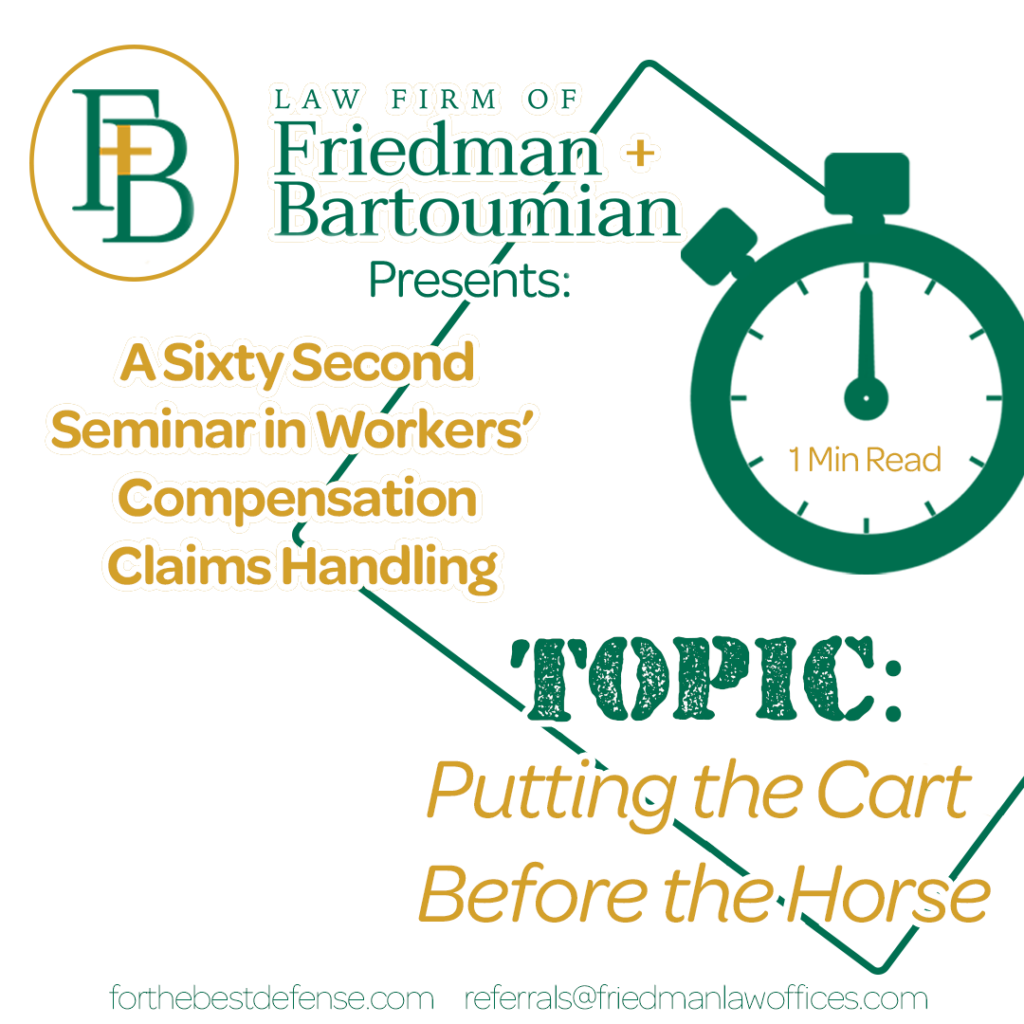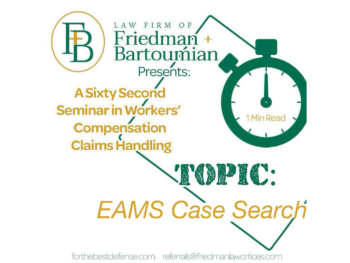
In today’s blog we will explain a legal tactic used by applicants’ bar for over 30 years that has needlessly cost employers untold amounts of money. It is our sincere desire to put an end to this maneuver by bringing it to the attention of the workers’ compensation defense community.
In September 1994 Governor Pete Wilson signed into law legislation amending Labor Code Section 3208.3, creating a myriad of pre-requisites before certain psychiatric injuries can be declared compensable. Three of the more noteworthy pre-requisites for establishing psychiatric compensability are:
- A worker must have been employed by the employer for at least six months, unless psychiatric injury was caused by a sudden and extraordinary event.
- Post-termination psychiatric claims are not compensable unless the employer had prior notice of injury or medical records exist documenting the injury prior to termination.
- Psychiatric injury is not compensable if attributed to a lawful, good-faith, non-discriminatory personnel action.
The above pre-requisites are questions of fact, meaning all may be adjudicated without the necessity of medical evidence. By way of example: a medical/legal opinion is totally irrelevant in determining whether an employee worked at least six months for an employer; nor is a medical report necessary to determine if a claim was filed after employment had terminated; or if a lawful, good-faith, non-discriminatory personnel action occurred. These are all decisions reserved to the trier of fact without the necessity of a medical/legal opinion. Only if a WCJ were to rule in their favor would the worker be entitled to a psychiatric med/legal evaluation, but not beforehand.
Again, when any of the three above defenses are raised, med/legal entitlement must first be determined before a psych QME examination; however, for almost 30 years applicant attorneys have scheduled psychiatric med/legal evaluations without that determination. It’s comparable to placing a cart before a horse.
It is no secret that psychiatric med/legal evaluations are exceptionally expensive, as they generate the highest reimbursement fees of all QME examinations. It is not uncommon that psychiatric examination fees exceed $15,000. So why do so many applicant attorneys continue to schedule psych QME exams before entitlement is determined? The answer is quite simple. If a medical report identifies a psychiatric injury or disability, a natural sympathy factor comes into play where a judge may be inclined to look more favorably towards awarding benefits. On the other hand, if the med/legal report favors the employer, then the judge will put pressure on the administrator to pay the QME bill as the worker will not be receiving comp benefits. Either way, we believe it is not right for an employer to pay $15,000 for a QME exam that should never have occurred in the first place.
We therefore recommendation that when any of the above three defenses are raised, the claims administrator should immediately make its position known to opposing counsel, advising that they will object and not participate in a psych QME evaluation until after the issue of entitlement is first determined. We suggest filing a DOR to obtain a hearing on the bifurcated issue of compensability should opposing an AA attempt to schedule a QME evaluation beforehand. Allowing applicant attorneys to put the cart before the horse is a practice that must end!
The dedicated team at Friedman + Bartoumian is ready to assist you in fighting needless med/legal exams!


 Volunteers: A Sixty-Second Seminar in Workers’ Compensation Claims Handling
Volunteers: A Sixty-Second Seminar in Workers’ Compensation Claims Handling
Leave a Reply